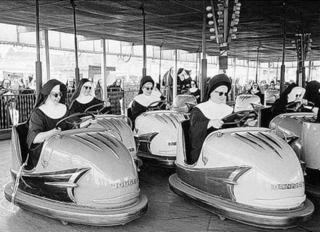Matt. 26:30; Mark 14:26 – they sung the great Hallel, which traditionally followed the Third Cup of the seder meal, but did not drink the Fourth Cup of Consummation. The Passover sacrifice had begun, but was not yet finished. It continued in the Garden of Gethsemane and was consummated on the cross.
Matt. 26:39; Mark 14:36; Luke 22:42; John 18:11 – our Lord acknowledges He has one more cup to drink. This is the Cup of Consummation which he will drink on the cross.
Psalm 116:13 – this passage references this cup of salvation. Jesus will offer this Cup as both Priest and Victim. This is the final cup of the New Testament Passover.
Luke 22:44 – after the Eucharist, Jesus sweats blood in the garden of Gethsemane. This shows that His sacrifice began in the Upper Room and connects the Passion to the seder meal where the lamb must not only be sacrificed, but consumed.
Matt. 27:34; Mark 15:23 – Jesus, in his Passion, refuses to even drink an opiate. The writers point this out to emphasize that the final cup will be drunk on the cross, after the Paschal Lamb’s sacrifice is completed.
John 19:23 – this verse describes the “chiton” garment Jesus wore when He offered Himself on the cross. These were worn by the Old Testament priests to offer sacrifices. See Exodus 28:4; Lev. 16:4.
1 Cor. 10:16 – Paul’s use of the phrase “the cup of blessing” refers to the Third Cup of the seder meal. This demonstrates that the seder meal is tied to Christ’s Eucharistic sacrifice.
John 19:34-35 – John conspicuously draws attention here. The blood (Eucharist) and water (baptism) make the fountain that cleanses sin as prophesied in Zech 13:1. Just like the birth of the first bride came from the rib of the first Adam, the birth of the second bride (the Church) came from the rib of the second Adam (Jesus). Gen. 2:22.
John 7:38 – out of His Heart shall flow rivers of living water, the Spirit. Consequently, Catholics devote themselves to Jesus’ Sacred Heart.
Matt. 2:1, Luke 2:4-7 – Jesus the bread of life was born in a feeding trough in the city of Bethlehem, which means “house of bread.”
Luke 2: 7,12 – Jesus was born in a “manger” (which means “to eat”). This symbolism reveals that Jesus took on flesh and was born to be food for the salvation of the world.
(d). The Eucharist Makes Present Jesus’ One Eternal Sacrifice; it’s Not Just a Symbolic Memorial
Gen. 14:18 – remember that Melchizedek’s bread and wine offering foreshadowed the sacramental re-presentation of Jesus’ offering.
Luke 22:19; 1 Cor. 11:24-25 – the translation of Jesus’ words of consecration is “touto poieite tan eman anamnasin.” Jesus literally said “offer this as my memorial sacrifice.” The word “poiein” (do) refers to offering a sacrifice (see, e.g., Exodus 29:38-39, where God uses the same word – poieseis – regarding the sacrifice of the lambs on the altar). The word “anamnesis” (remembrance) also refers to a sacrifice which is really or actually made present in time by the power of God, as it reminds God of the actual event (see, e.g., Heb. 10:3; Num. 10:10). It is not just a memorial of a past event, but a past event made present in time.
In other words, the “sacrifice” is the “memorial” or “reminder.” If the Eucharist weren’t a sacrifice, Luke would have used the word “mnemosunon” (which is the word used to describe a nonsacrificial memorial. See, for example, Matt. 26:13; Mark 14:9; and especially Acts 10:4). So there are two memorials, one sacrificial (which Jesus instituted), and one non-sacrificial.
Lev. 24:7 – the word “memorial” in Hebrew in the sacrificial sense is “azkarah” which means to actually make present (see Lev. 2:2,9,16;5:12;6:5; Num.5:26 where “azkarah” refers to sacrifices that are currently offered and thus present in time). Jesus’ instruction to offer the bread and wine (which He changed into His body and blood) as a “memorial offering” demonstrates that the offering of His body and blood is made present in time over and over again.
THE EUCHARIST - Scripture Catholic


